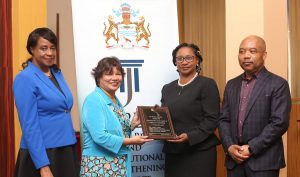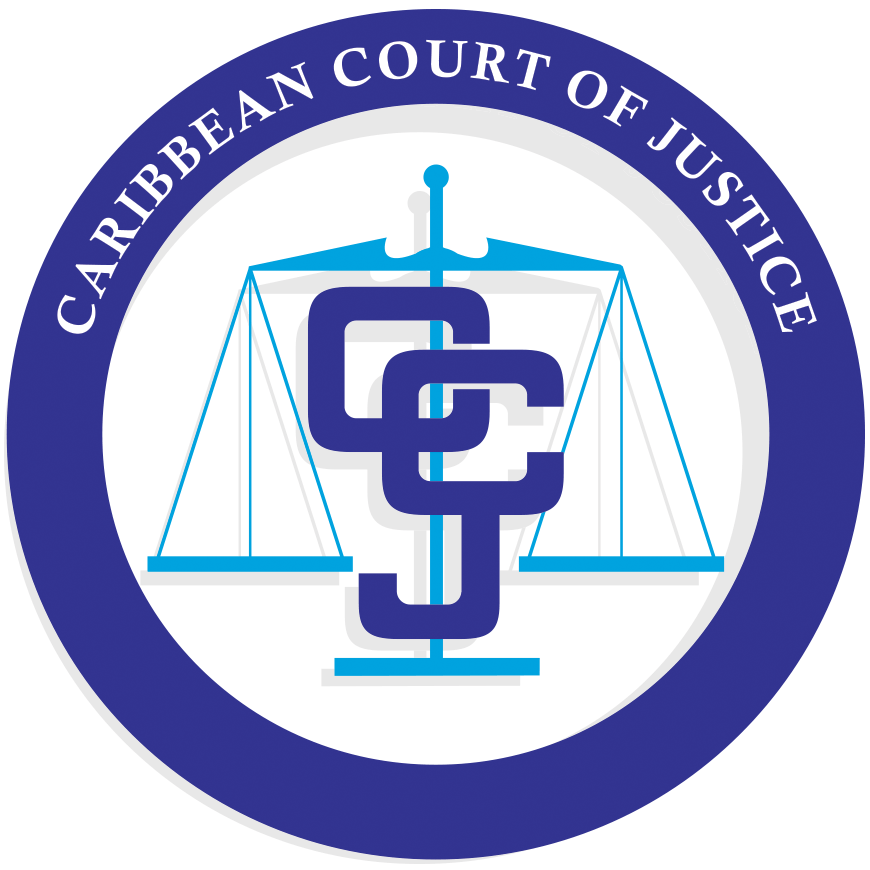 Technology brings transformational change and enormous benefits to all stakeholders in the justice system. This was the view of the Honourable Mme. Justice Yonette Cummings-Edwards, Chancellor of the judiciary of Guyana. However, she assured that it will not replace judges, magistrates, registrars and judicial officers, but “technology in the hands of these great persons will transform the judicial landscape.”
Technology brings transformational change and enormous benefits to all stakeholders in the justice system. This was the view of the Honourable Mme. Justice Yonette Cummings-Edwards, Chancellor of the judiciary of Guyana. However, she assured that it will not replace judges, magistrates, registrars and judicial officers, but “technology in the hands of these great persons will transform the judicial landscape.”
The Honourable Chancellor was speaking at the official handing-over ceremony of ten Liberty systems to the judiciary of Guyana by the Canadian funded Judicial Reform and Institutional Strengthening (JURIST) Project on Monday January 28, 2019 at the Pegasus Hotel in Georgetown, Guyana.
She explained that while there has been technological advancement in the Guyanese judiciary over the years, budgetary considerations have prevented further movement in that direction.
Justice Cummings-Edwards, noted that the introduction of technology in court proceedings has many advantages including the timely delivery of record, easy access to transcripts, improvement in the storing, retrieving and archiving of court records. “There will also be increased efficiency – anachronism and delays will be a thing of the past. Backlog – a thing of the past. Overall timely disposition of cases and delivery of decisions. The technology will allow judges and magistrates to spend more time listening to the evidence rather than having to write down or record what the witness is saying. Technology is a tool to get the work done faster.” she stated.
The equipment was installed from November 11-14, 2018 in 10 courts across Guyana – nine in Georgetown and one in Berbice. The systems will allow the courts to capture, store and retrieve digitally recorded audio of courtroom proceedings.
Her Excellency Lilian Chatterjee, High Commissioner of Canada to Guyana, said Canada has been a long-time supporter for the justice sector initiatives in Guyana. Previously the Government of Canada has partnered with the judiciary for the establishment of the Family Court and the development of the Model Guidelines for Sexual Offence Cases in the Caribbean.
The High Commissioner added that in addition to the JURIST Project, Canada is also supporting the Improved Access to Justice in the Caribbean Project (IMPACT Justice). “Both are approximately Canadian $20 million projects which aim to support Guyana and Caribbean countries to establish a judicial system that is more responsive to the needs of citizens.”
She continued: “These projects are examples of Canada’s commitment to Guyana to help strengthen legal systems and to promote legal reforms that eliminate all forms of discrimination against women, girls, as well as men, boys and marginalized groups.” This is an important area for Canada, as they are committed to working with Guyana and other Caribbean countries to remove the barriers that prevent traditionally marginalized groups from participating equally in society.
Ms. Alicia Lowenfield, deputy registrar, Supreme Court, shared her experience of using the new technology in the courts. “The judiciary in Guyana has from its inception, been mandated to take its trial notes by hand. We have never had the luxury of recording equipment in our courts. The prospect of not having to continue that practice is quite welcomed among the ranks of our judiciary,” she said.
She highlighted the fact that the equipment provided by the Project, was being used for the past two months as a pilot initiative in the judiciary. Feedback to date has been positive with those persons having direct interface with the equipment expressing their excitement and satisfaction with the smooth flow of processes and functioning of the systems. Ms. Lowenfield added that while there were some teething problems, this could easily be solved with further training and sensitization, which the Project is also providing.






